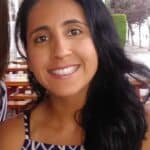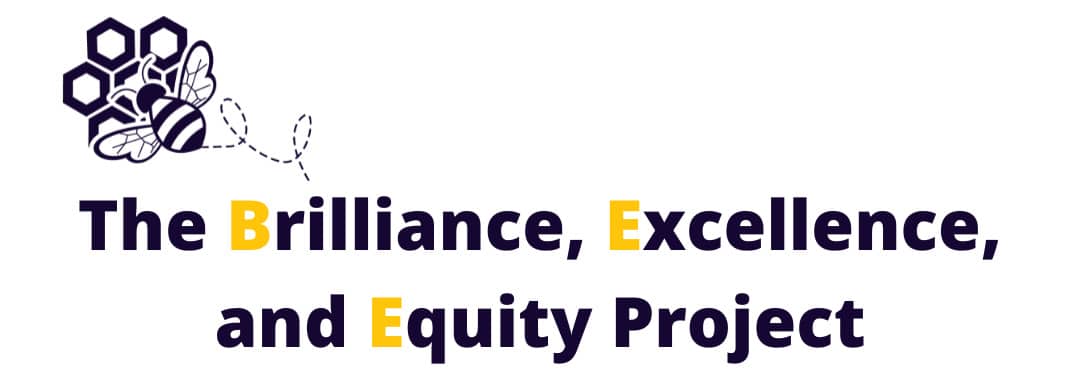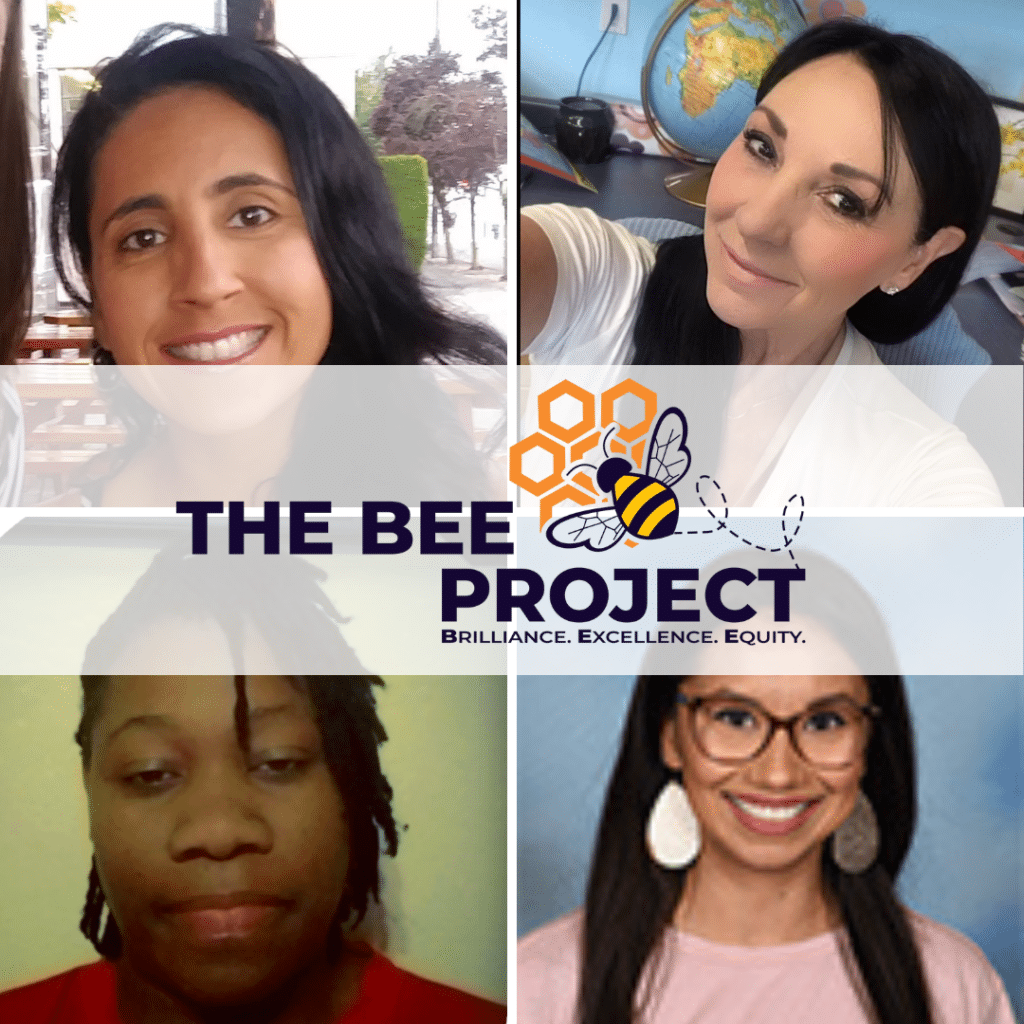Last month, thinkLaw successfully launched The BEE Project. Our first cohort includes 17 Black and Hispanic teachers across multiple Arizona school districts. Each participant will be receiving $2,000 to earn their gifted endorsement through an equity-focused PL and clinical experience. With so many amazing participants, we’re going to be showcasing their unique backgrounds as we continue growing this game-changing program.

Deanna Celaya
School District: Tempe
Teaching Grade Level: 6th grade
Years of Teaching Experience: 15 years
About Deanna Celaya
I come from a Mexican American family. My mother is one of 10 children who grew up working in the fields. She was born in Mexico and became an American citizen. My father grew up in a small mining town in Arizona. They both met in college and raised my brother and I with the values that education pays for itself tenfold!
Describe any barriers you face as a Black or Hispanic educator in your work with culturally and linguistically diverse and/or economically disadvantaged students.
One barrier that comes to mind is the fact that I do not speak Spanish. I do come from a traditional Hispanic background/ family, I am second generation. I was raised to speak English, with the hope that I would pick up the language among family members in casual conversation. This was not the case unfortunately as I understand some Spanish in conversation, I am not able to speak in return. I have always felt that if I were fluent in Spanish, that I could better communicate with families and students who do not speak English. This year, having a student who does not speak English I do wonder if she is challenged even though she does not speak the language.
Why did you join the BEE Project?
I have worked in the Tempe Elementary School district for over 15 years now where we primarily serve our Black and Hispanic communities. Coming from a huge Hispanic family, I learned the value of what an education can bring. Sharing common background whether it be culture, family and or values reassures me that I am teaching in the right place. The BEE Project interested me because we have a gifted academy on our campus and the question always comes to mind of, are we truly offering and serving our student population in how we are identifying gifted students?

Elizabeth Gragg
School District: Tempe Elementary School District
Teaching Grade Level: 4th Grade
Years of Teaching Experience: 17
About Elizabeth Gragg
I am a product of Tempe Schools. I was born and raised in Tempe, AZ. My father was White and my mother Hispanic. Even though my mother spoke Spanish fluently, it was not to be spoken in the house while growing up. My father was an educator. He taught school and eventually was a principal at a school on the White Mountain Apache Reservation in eastern Arizona. I attended all Indian schools in Cedar Creek and Whiteriver, AZ until 3rd grade. We moved back to Tempe, and I started attending Tempe Schools. When I entered middle school, my father passed away. My mother raised my sister and me. She was young, uneducated and our lives changed drastically. I grew up very early in life, taking on adult responsibilities to help at home. I lived with a lot of stress for a number of years. I can relate to what many of my students go through in life. I was a late bloomer only because it took me a while to find my path and get through college. I never had the support of good teachers in school. It took an incredible amount of courage, self-talk, and intrinsic motivation to find my way. I’m grateful for this opportunity to teach at Nevitt School and to help students navigate their path and find success in life. If I could find my way, I know with my help it’s possible for them as well.
Describe any barriers you face as a Hispanic educator in your work with culturally and linguistically diverse and/or economically disadvantaged students.
The barriers faced as a Hispanic educator when teaching Black or Hispanic students is the language barrier and the parental understanding of the expectations and demands of school. It seems like there is no real awareness of the big world around them other than their cultural community and family. In the classroom, some students want to fast track to success by the influences they see on social media, i.e YouTube stars. They don’t understand why education is important if you can make money fast. Additionally, my students confide in me about parental disputes and not being able to sleep or get homework done. They also worry about their incarcerated parents while living with other family members until they get out. I also see kids come to school hungry, sleep deprived and not groomed or clean.
And finally, I see that these kids cannot focus on setting goals, because their immediate goals are day to day survival, not long term. Sadly, it’s a vicious cycle, and educators do their best to help students realize their worth so that they have a chance at breaking out of the cycle and finding success.
Why did you join the BEE Project?
I joined the BEE project because of the educational impact it will have on exceptional learners who are Black and Hispanic. This project supports teachers and helps us to elevate our instructional practices in the classroom so that our gifted learners are impacted for long term success. I have been teaching Black and Hispanic students for the past 5 years. Even though I have been successful in helping students succeed, I do not have the relevant training to truly maximize their success in the classroom.

Kemille Gordon-Davis
School District: Buckeye Elementary School District
Teaching Grade Level: 6th Grade
Years of Teaching Experience: 16
About Kemille Gordon-Davis
I am from the Beautiful Island of Jamaica, where I’ve lived for most of my life. I have been a teacher since 2005, working with students ranging from kindergarten to middle school. I am married to my wonderful husband, and we have three amazing children. I love to sing, create artistic pieces, do athletics, and spend time with family.
I was raised in a community of youths, where education was introduced as the only lens through which we would be seen. Later in my life, I realized that it was true, but not the absolute. I learnt that I could be more than what the lens could see if I gave myself the chance; the chance that would not be handed to me, but the one I’d have to take with both hands.
Describe any barriers you face as a Black or Hispanic educator in your work with culturally and linguistically diverse and/or economically disadvantaged students.
As a Black educator, I think rather than a barrier, being black has been a blessing. I say this because we as a people have overcome so many struggles and quite often, students just need someone who can understand. Finding a common ground on which to establish a connection is what being a Black educator has been for me. I am able to empathize with students who struggle with different issues because I have been there. Students feel that they can trust me, they know that I am a real person just like they are, and the experience of learning does not have to be a lonely road.
Why did you join the BEE Project?
My interest in the BEE program stems from the fact that I am currently teaching a group of gifted students, where not one looks like me. I’ve always wondered why Hispanic, and kids of color are always so poorly represented when it comes to activating their intellectual intelligence. Considering this, I am really excited to be part of a group that I believe can help me to be better equipped at identifying these often-overlooked students, who are simply waiting to be found. I want to be a treasure hunter who not only seek for the obvious, but the invisible.

Sandra Matadamas
School District: Country Place Leadership Academy/Littleton Elementary School District
Teaching Grade Level: 1st Grade
Years of Teaching Experience: 12
About Sandra Matadamas
I was raised by a single mom that was an immigrant from Mexico. I was raised in a Spanish speaking household. I began learning English when I moved to Arizona in 3rd grade. I was the first to graduate high school and graduate from college in my family. Right out of college, I got my first teaching job and have been teaching ever since.
Describe any barriers you face as a Black or Hispanic educator in your work with culturally and linguistically diverse and/or economically disadvantaged students.
A barrier that I would say my work has is having many families be first/second generation families in the US. In my experience most families have that as a disadvantage from not knowing their rights as parents and not knowing that they could raise questions/concerns that they may have about their children and their education. One of my many jobs is to educate parents on what they are able to do.
Why did you join the BEE Project?
I am so excited to see this opportunity. Being Hispanic, I didn’t see teachers that looked like me growing up so it’s always been important to me to represent in the community. My first teaching job was actually in the school that I went to. I was proud to tell students that I was just like them and now I was a teacher teaching them. It has been such an amazing experience being a Hispanic teacher to a mostly Hispanic community because I am able to communicate with them. I have been told multiple times how parents have been grateful to have me as their child’s teacher because I spoke Spanish and they felt comfortable communicating to me.

